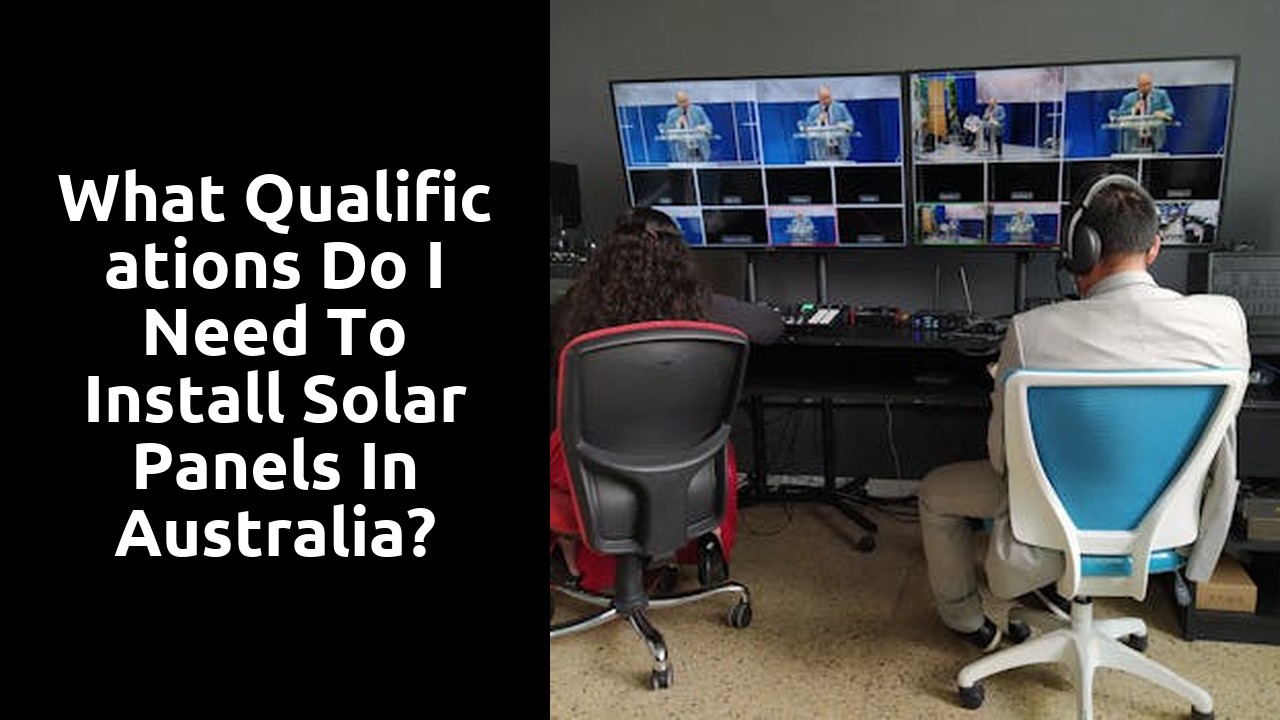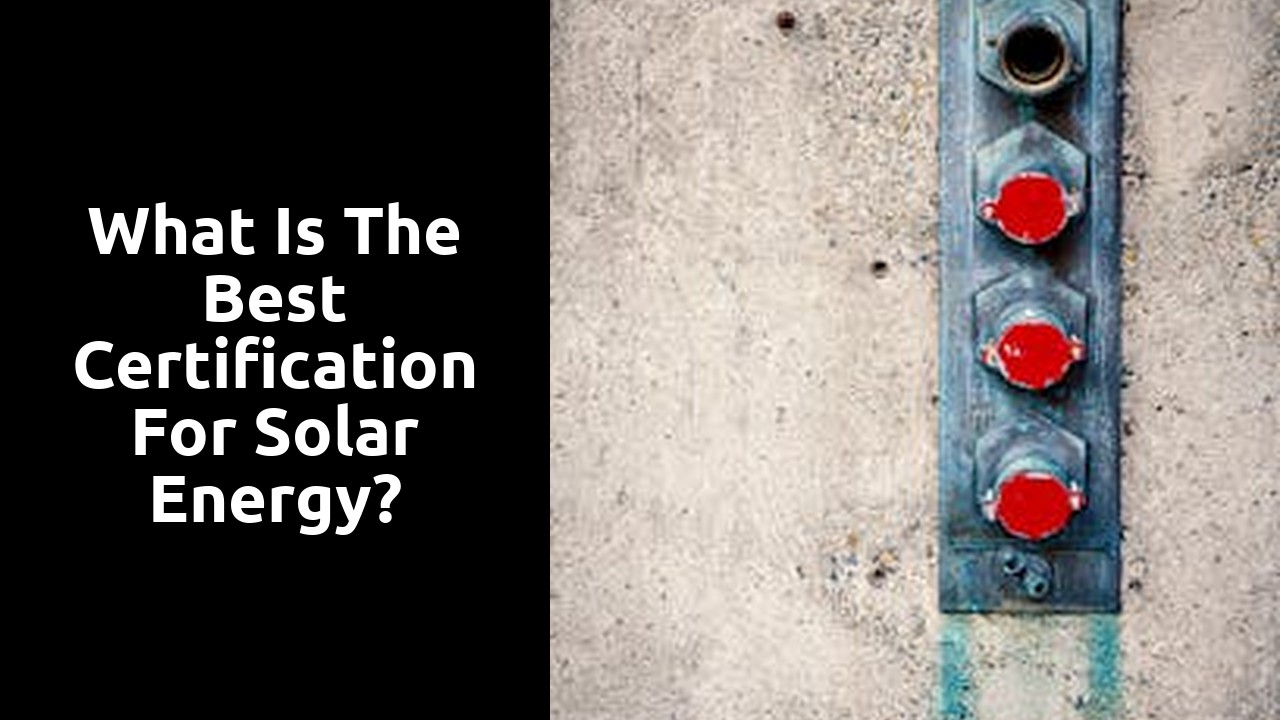
Permit and Certification Requirements for Solar Panel Projects
To undertake the installation of solar panels in Australia, individuals must adhere to specific permit and certification requirements. It is imperative for installers to secure the necessary accreditations before commencing any solar panel projects. One of the crucial certifications is the Clean Energy Council (CEC) accreditation, which ensures that installers are proficient in designing and installing solar systems. Additionally, installers should possess a valid electrical license issued by the relevant state or territory authority to guarantee compliance with safety standards and regulations stipulated by the Australian government. Without the proper certifications, installers risk facing legal consequences and compromising the quality and safety of the solar panel installation.
Moreover, individuals seeking to install solar panels in Australia must obtain a Solar Panel System Performance Certification. This certification verifies that the solar panel system meets the required performance standards and is eligible for government incentives such as rebates and feed-in tariffs. The performance certification is essential for ensuring that the installed solar panels operate efficiently and generate the expected amount of renewable energy. By obtaining the Solar Panel System Performance Certification, installers demonstrate their commitment to quality workmanship and adherence to industry standards, which ultimately contributes to the sustainable growth of the solar energy sector in Australia.
Building Regulations Compliance
Building regulations compliance is a crucial aspect of installing solar panels in Australia. The Australian standards and guidelines are in place to ensure the safety and quality of solar panel installations. Compliance with these regulations not only guarantees the safety of the system but also ensures that it operates efficiently over its lifetime. As part of the compliance process, installers must adhere to specific requirements related to electrical safety, structural integrity, and system performance.
One of the key documents that installers need to obtain to demonstrate compliance with building regulations is the Solar Panel System Performance Certification. This certification verifies that the solar panel system meets the necessary performance standards and is safe for installation. By securing this certification, installers can assure customers that the solar panel system has been installed in accordance with the relevant regulations, giving them peace of mind that their investment is both safe and effective.
Insurance and Liability Considerations for Solar Panel Installers
Insurance and liability considerations are crucial aspects that solar panel installers in Australia must carefully address. Public liability insurance is a fundamental necessity for solar panel installers as it provides coverage in case of accidents or damages that may occur during the installation process. This insurance ensures financial protection against any potential third-party claims that may arise due to personal injury or property damage caused by the installation activities. Additionally, it is essential for solar panel installers to verify that they hold the required Solar Panel System Performance Certification to guarantee compliance with industry standards and regulations.
In the event of unforeseen circumstances such as system malfunctions or defects following installation, liability considerations come into play for solar panel installers. Having appropriate insurance coverage can safeguard installers from potential legal and financial implications that may arise from such situations. By diligently addressing insurance and liability aspects, solar panel installers can not only protect themselves and their businesses but also provide assurance to clients regarding the reliability and professionalism of their services.
Public Liability Insurance
Public liability insurance is a crucial element for solar panel installers in Australia. This type of insurance offers protection in cases where third-party property damage or personal injury occurs during the installation process. It is important for installers to have this insurance to safeguard against any unexpected incidents that may arise while working on a project. Moreover, having public liability insurance can also provide reassurance to clients, showcasing the installer's commitment to safety and professionalism.
In addition to general public liability insurance, solar panel installers should also consider obtaining insurance specifically tailored to the solar industry. This can include coverage for risks associated with the design, installation, and maintenance of solar panel systems. Ensuring that insurance policies are comprehensive and up-to-date not only protects the installer but also contributes to building trust with customers seeking reliable and qualified professionals for their solar energy needs. It is imperative for solar panel installers to have appropriate insurance coverage in place to mitigate risks and operate responsibly in the industry.
Continuing Education and Professional Development for Solar Panel Installers
Continuing education and professional development are crucial for solar panel installers to stay up-to-date with the latest industry standards and best practices. In Australia, it is recommended for installers to regularly attend training programs and workshops to enhance their skills and knowledge in solar panel installation. Additionally, obtaining qualifications such as the "Solar Panel System Performance Certification" can demonstrate a high level of competency and expertise in the field, setting installers apart from others in the industry.
By engaging in continuing education and professional development opportunities, solar panel installers can gain a deeper understanding of new technologies and innovations in the solar energy sector. This enables them to offer more efficient and reliable solutions to their customers, while also ensuring compliance with regulatory requirements and building codes. Investing in ongoing training and education not only benefits the installers themselves but also contributes to the overall growth and sustainability of the solar panel installation industry in Australia.
New Technology Integration
Continual advancements in solar technology have greatly impacted the efficiency and output of solar panel systems in recent years. In order to stay competitive in the market and provide the best solutions for customers, it is crucial for solar panel installers to stay updated on the latest innovations. This includes understanding and integrating new technologies such as smart inverters, energy storage systems, and monitoring devices into their installations. By keeping abreast of these developments, installers can ensure that they are offering cutting-edge solutions that maximize energy production and efficiency for their clients.
One important aspect of integrating new technology into solar panel installations is ensuring that the system meets the required standards and certifications. Solar panel installers need to be familiar with the regulations and guidelines set by relevant authorities to ensure compliance. In Australia, the Clean Energy Council provides the Solar Panel System Performance Certification, which is a crucial certification that demonstrates the quality and performance of a solar panel system. By obtaining this certification and staying informed about new technologies, installers can deliver top-notch solutions that are not only efficient but also meet the necessary requirements for a successful installation.
FAQS
What qualifications are required to install solar panels in Australia?
To install solar panels in Australia, you need to hold a Certificate III in Electrotechnology Electrician or Certificate III in Renewable Energy.
Do I need a permit to install solar panels in Australia?
Yes, you need to obtain a permit from the local council or relevant authority before installing solar panels on your property.
What certifications do I need to have to work on solar panel projects in Australia?
You need to have a Clean Energy Council (CEC) accreditation to work on solar panel projects in Australia.
How can I ensure my solar panel installation complies with building regulations in Australia?
To comply with building regulations, ensure that your solar panel installation is done by a licensed and accredited installer who follows all relevant Australian standards and guidelines.
What insurance and liability considerations should I keep in mind as a solar panel installer in Australia?
It is important to have public liability insurance to cover any damages or injuries that may occur during the installation process.
How can I stay updated on new technologies and advancements in the solar panel industry as an installer in Australia?
To stay informed about new technologies, consider participating in continuing education programs and professional development opportunities specific to solar panel installations.
Are there any specific courses or training programs recommended for solar panel installers in Australia?
Yes, courses such as the Grid Connect Design and Install and Stand-Alone Power Systems Design and Install are recommended for solar panel installers in Australia.
What are the key considerations when integrating new technologies into solar panel installations in Australia?
When integrating new technologies, ensure that they comply with Australian regulations, are compatible with existing systems, and are installed by qualified professionals to maintain system efficiency and safety.
